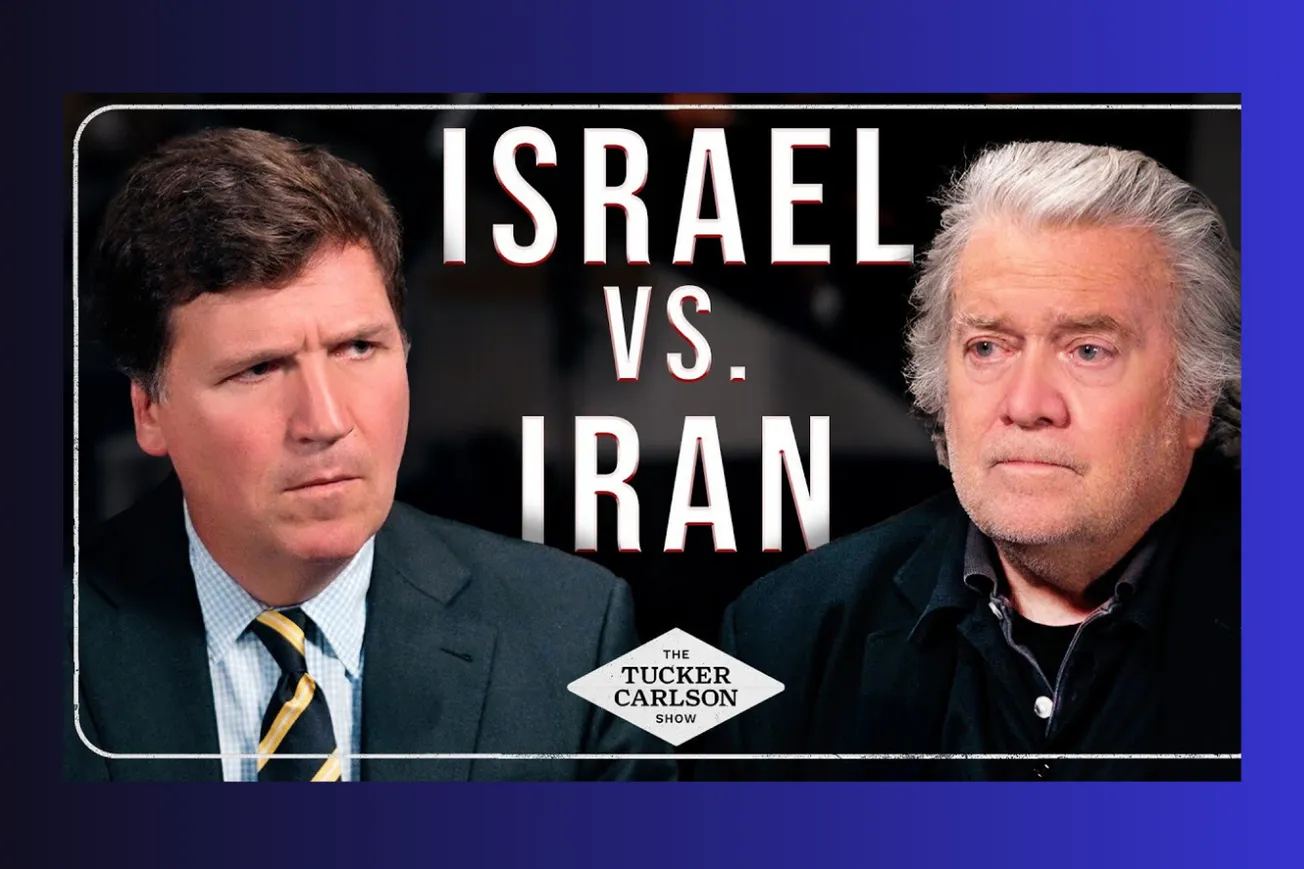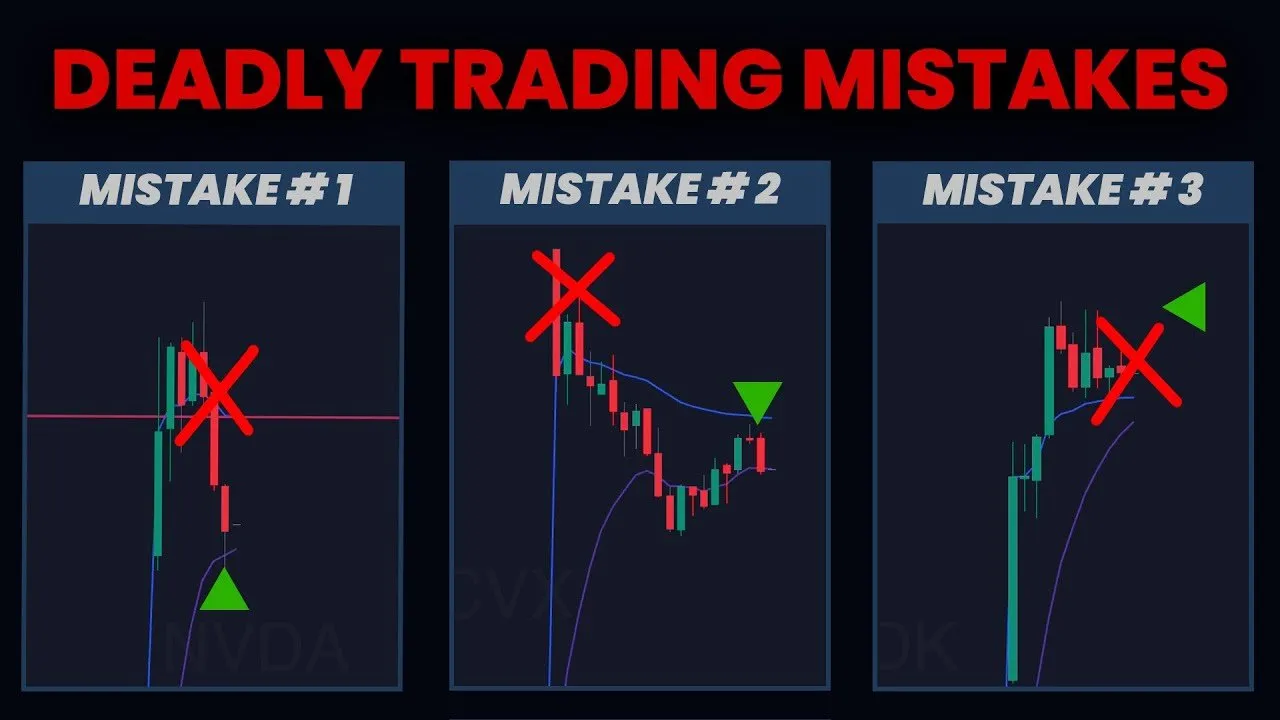Table of Contents
In a wide-ranging discussion, two of Trump's most prominent allies argue that America's rush toward war with Iran represents an existential threat to the MAGA movement's core mission.
Key Takeaways
- Trump's coalition faces its greatest test as Middle East war threatens to override domestic priorities like mass deportation and border security
- The deep state apparatus maintains control despite Trump's return, with only handful of political appointees facing massive entrenched bureaucracies
- Current conflict escalation mirrors Iraq War propaganda playbook, with shifting justifications and inexorable drift toward full combat involvement
- California's resistance to federal immigration enforcement represents "neo-Confederate" defiance requiring decisive federal action
- Next 200 days will determine whether Trump's movement can overcome institutional opposition or face permanent marginalization
- The CIA and intelligence agencies operate as modern Praetorian Guard, controlling policy regardless of elected leadership
- Fox News and establishment Republicans actively undermine Trump's three core planks: ending forever wars, mass deportation, and trade restructuring
- America has entered kinetic phase of World War III with casualty levels exceeding early World War II conflicts
The Coalition Under Siege
Steve Bannon describes Trump's 2024 victory as creating an "unprecedented coalition" that transcends traditional political boundaries. This alliance includes tech entrepreneurs, economic nationalists, working-class Hispanics in South Texas, and anti-war activists united around three core principles: ending forever wars, sealing the border with mass deportations, and restructuring global trade relationships.
However, Bannon argues this coalition now faces systematic dismantling. The rush toward military confrontation with Iran threatens to consume the political capital and attention needed for domestic transformation. "If we get sucked into this war, which inexorably looks like it's going to happen on the combat side, it's going to not just blow up the coalition, it's also going to thwart what we're doing with the most important thing, which is the deportation of illegal alien invaders," Bannon states.
The timing appears particularly suspicious to both men. Just as Trump begins implementing mass deportation operations—described by Bannon as potentially triggering "civil war in these big cities"—a major Middle East conflict erupts demanding immediate military response.
Deep State Resistance Operations
Both Carlson and Bannon detail how entrenched bureaucracies maintain effective control despite electoral outcomes. Bannon notes that key agencies have only "a handful" of Trump appointees overseeing massive organizations: "We have two people at FBI, Cash and Bonino. We got a handful of people over at Justice Department in a massive 30,000 or 15,000-20,000 person operation."
The CIA emerges as particularly problematic in their analysis. Carlson observes how the agency uses sophisticated psychological operations against its critics, including convincing Republican primary voters that Joe Kent—a former CIA contractor turned critic—actually worked for the agency. This "brilliant" manipulation demonstrates the sophistication of institutional resistance.
Bannon describes the intelligence apparatus as operating like Rome's Praetorian Guard: "They are planning right now to thwart President Trump's second term, make sure they wait him out, and they're going to have a hand-selected person for the third term."
Media Manipulation and War Propaganda
The discussion reveals how media outlets, particularly Fox News, serve deep state interests on foreign policy. Carlson notes David Ignatius of the Washington Post—described as the "Langley Bugle"—praising Trump's handling of the Iran crisis as a "red flare" indicating intelligence community approval.
Both men draw explicit parallels to Iraq War propaganda. Bannon details how Israeli justifications for attacking Iran have shifted multiple times: from immediate nuclear threats requiring Thursday night action, to admissions the program remains "12 or 13 months" away, to expanding mission scope requiring American combat support.
"This is exactly the same pitch as the Iraq war," Bannon states. "Weapons of mass destruction. You have to get it. They understand one thing. They think the playbook works."
California's Neo-Confederate Resistance
A significant portion focuses on California's defiance of federal immigration enforcement. Bannon labels Governor Gavin Newsom's sanctuary policies as "neo-Confederate" resistance to federal authority, drawing parallels to 1860s secession.
"I thought we settled this about federal law and states rights and succession in the mid-1860s. We had a civil war to determine the outcome of this," Bannon argues. He advocates for decisive federal action, including potential military intervention: "If you need to send in the army, if you need to send in federalized National Guard, we have to do it."
The stakes extend beyond immigration policy. Bannon suggests California's resistance represents a fundamental challenge to American sovereignty, with major cities no longer functioning as part of the American republic.
The Institutional Republican Problem
Both men express frustration with establishment Republicans who claim Trump loyalty while undermining his agenda. Senator Tom Cotton receives particular criticism for allegedly blocking Kennedy assassination file releases and supporting endless military interventions.
Bannon describes the Republican Party as "controlled opposition" that fundamentally opposes Trump's three core planks. "The official apparatus of the Republican party hates all three of those and doesn't agree with any of them," he states.
This creates the paradox of Trump allies actively subverting Trump policies. Lindsey Graham and Mike Pompeo face criticism for recent trips to Ukraine and Ukraine respectively, allegedly encouraging continued conflict while Trump pursues negotiated settlements.
The Next 200 Days
Bannon emphasizes the critical nature of the immediate period: "The next 200 days are some of the most perilous times for the American Republic in its history." He argues this represents a "break the glass emergency" requiring unprecedented action against deep state control.
The window for reform appears narrow. If Trump's team cannot achieve decisive victories against institutional resistance within months, Bannon suggests the movement may never recover sufficient momentum for fundamental change.
Success requires more than personnel changes. Bannon advocates for systematic dismantling of intelligence agencies and Pentagon structures that operate independently of civilian control. "We have to lance this. This is like the Roman late stage of the Roman Empire when the Praetorian Guard kind of ran the deal."
Common Questions
Q: What makes Trump's coalition unprecedented?
A: It unites traditionally opposing groups—tech entrepreneurs, working-class minorities, economic nationalists—around shared anti-establishment principles rather than traditional party lines.
Q: How does the deep state maintain control despite elections?
A: Through massive bureaucratic structures with minimal political appointee oversight, inter-agency coordination, and sophisticated media manipulation operations.
Q: Why do establishment Republicans oppose Trump's agenda?
A: They represent neoliberal-neoconservative ideology favoring global empire over national sovereignty, directly conflicting with Trump's America First populism.
Q: What parallels exist between current Iran crisis and Iraq War?
A: Similar propaganda techniques, shifting justifications, inexorable drift toward combat involvement, and media coordination promoting military intervention.
Q: How serious is California's immigration resistance?
A: It represents fundamental challenge to federal authority comparable to 1860s secession crisis, potentially requiring military enforcement of federal law.
This conversation reveals the profound institutional challenges facing Trump's second term. Both men argue that without decisive action against deep state control, the movement's historic opportunity for transformation will be permanently lost.





